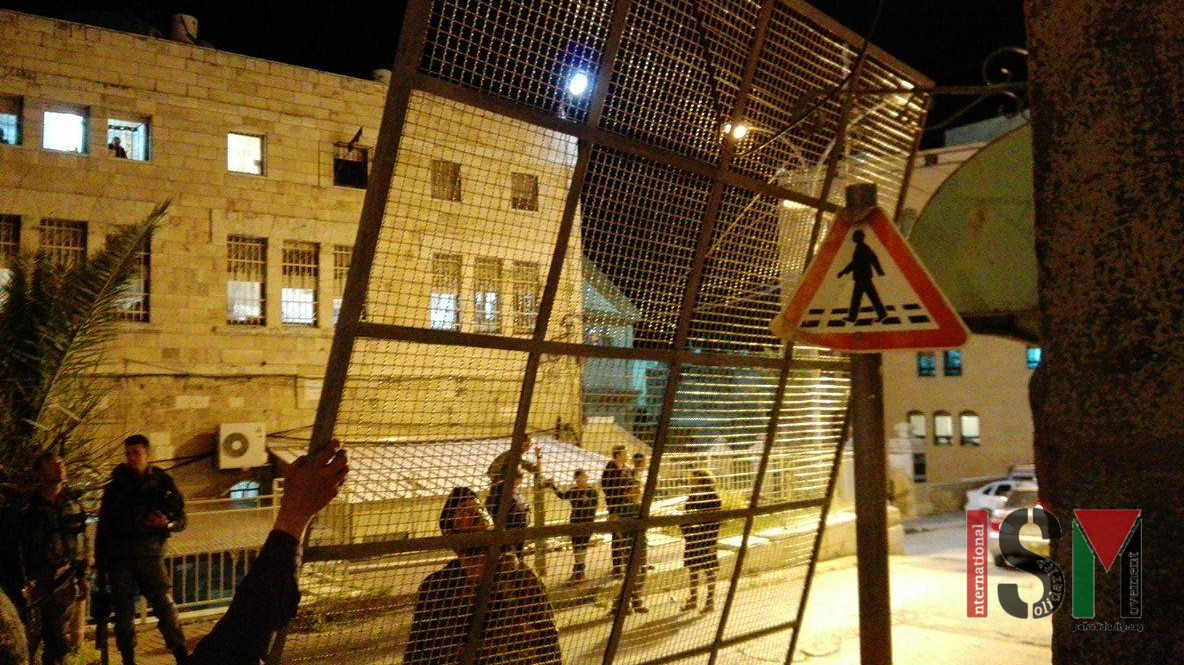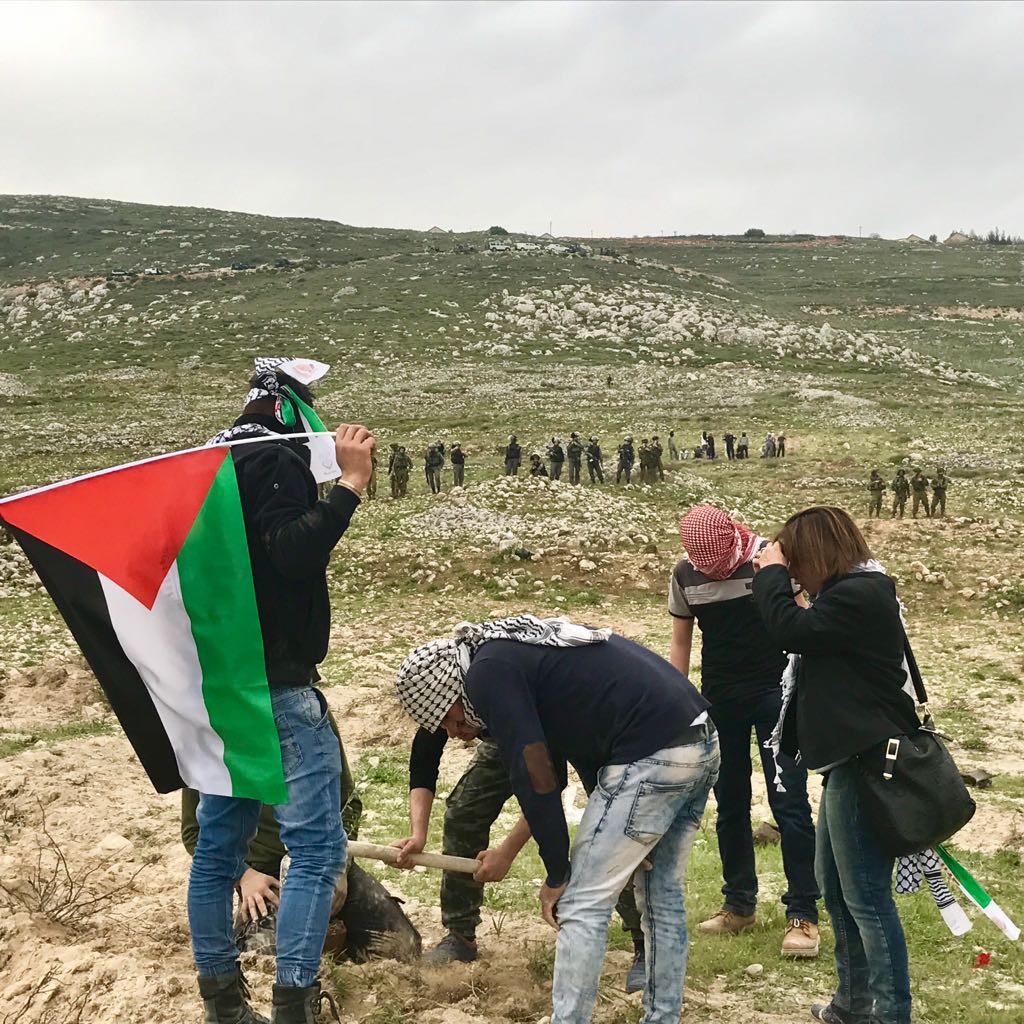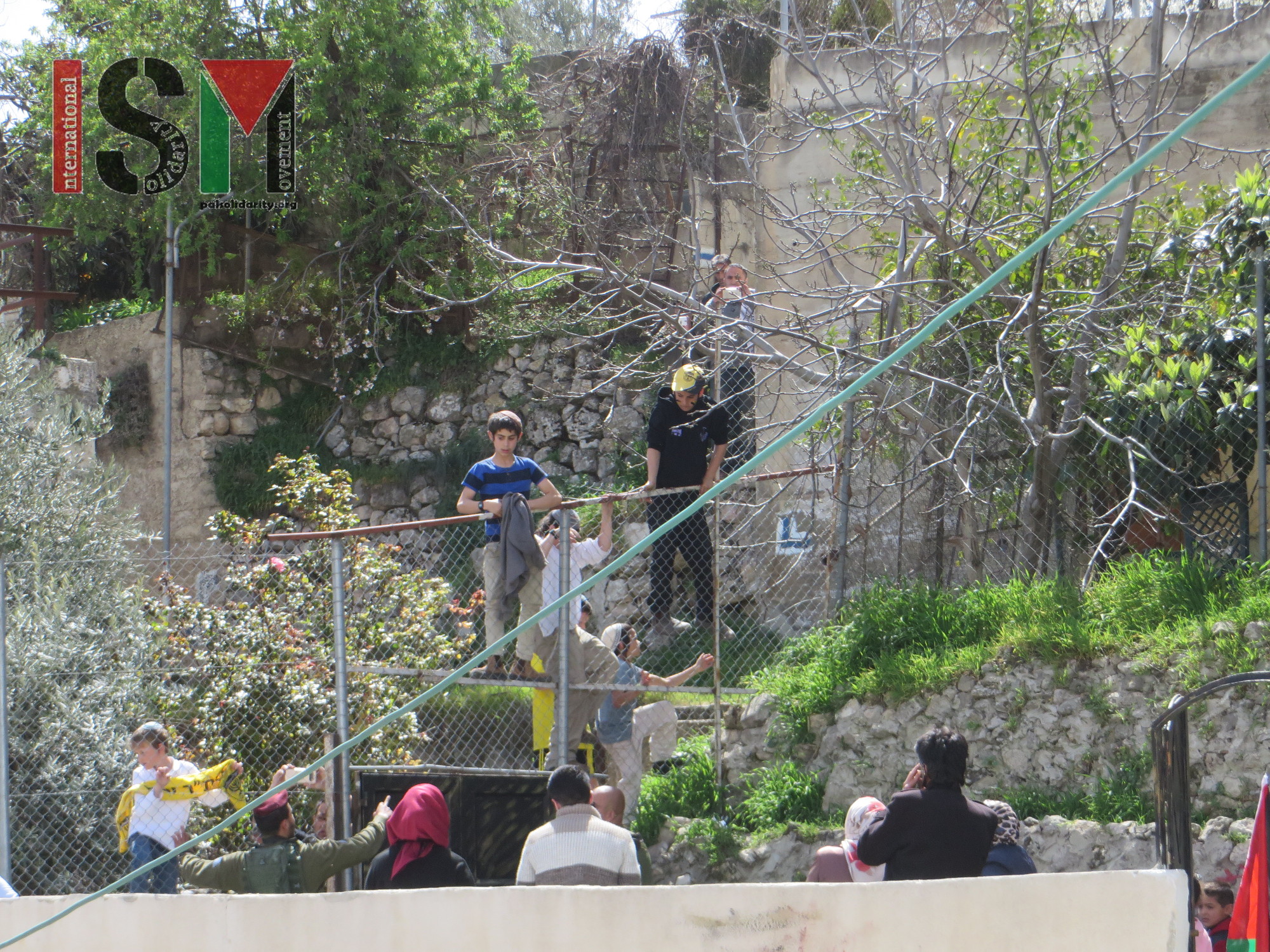Tag: Settlers
-
Israeli forces obstruct transport and installation of protective fence
6th April 2017 | International Solidarity Movement, al-Khalil team | Hebron, occupied Palestine Israeli forces on Tuesday evening, 4th April 2017, obstructed the transport of large materials by Palestinians on Shuhada Street in occupied al-Khalil (Hebron). Palestinians were carrying the large metal pieces first to Shuhada checkpoint, where just a few days before, Israeli forces…
-
Madama village marks Land Day 2017 under heavy military violence
31st March 2017 | International Solidarity Movement, Ramallah team | Madama, occupied Palestine Thursday the 30th of March was Land Day, a day in which Palestinians and their supporters commemorate the loss of huge amounts of land, stolen by the Zionist colonisers in 1976. In Madama village, in the Nablus area, around 300 Palestinian activists…
-
Curfew, harassment and break-in for Shuhada Street as settlers celebrate Purim
14th March 2017 | International Solidarity Movement, al-Khalil team | Hebron, occupied Palestine Israeli settlers on 12th March 2017 harassed and threatened Palestinians and attempted to break into Shuhada Street kindergarten, as the Tel Rumeida neighborhood in occupied al-Khalil (Hebron) was put under curfew for Palestinians so that settlers could celebrate Purim undisturbed by Palestinian presence.…



